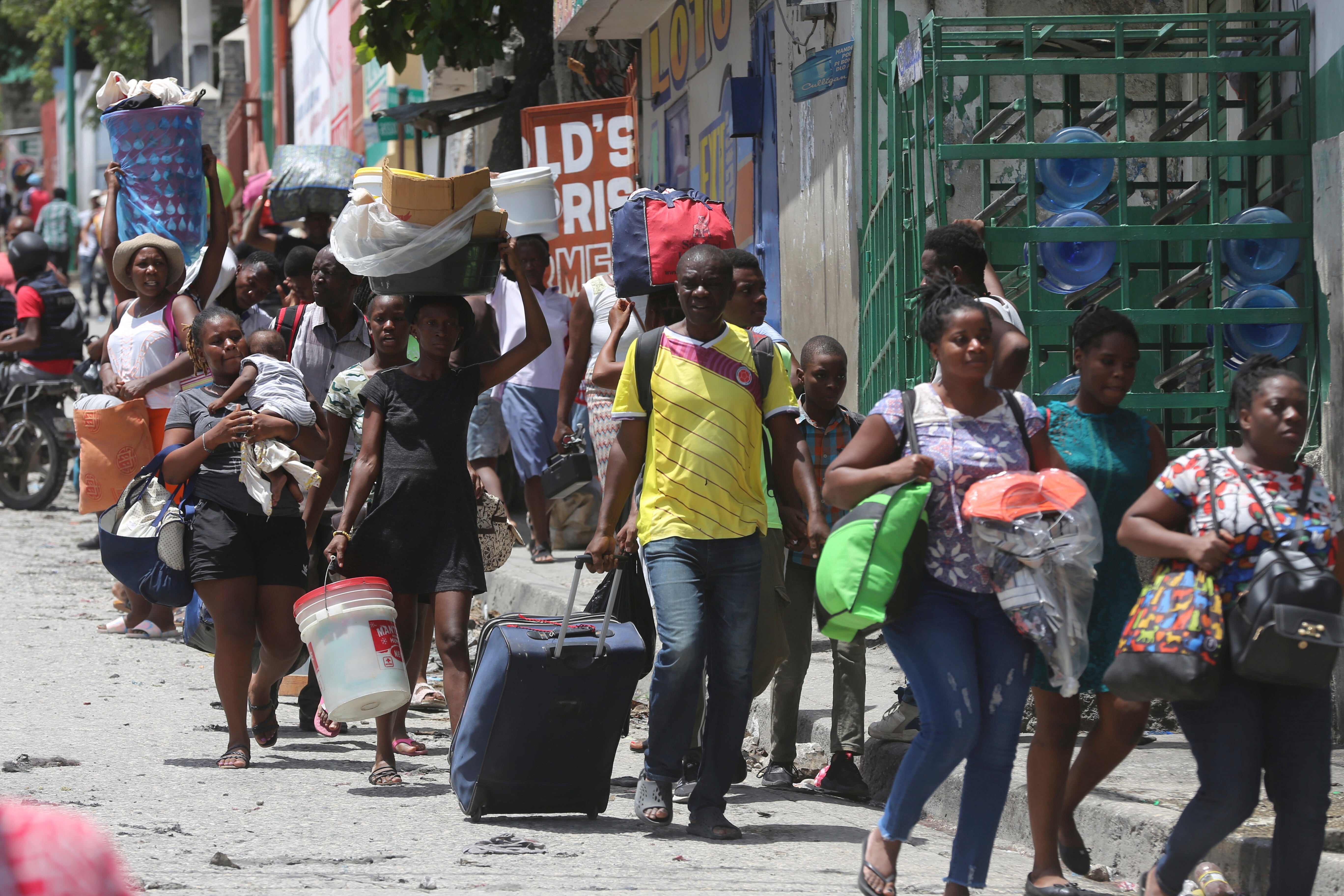UN warns that gang violence is overwhelming Haiti's once peaceful central region
The U.N. says gangs are invading Haiti’s rural central region and suffocating a once peaceful area that served as the country’s food basket but that is now plagued by kidnappings, killings and rapes

Your support helps us to tell the story
From reproductive rights to climate change to Big Tech, The Independent is on the ground when the story is developing. Whether it's investigating the financials of Elon Musk's pro-Trump PAC or producing our latest documentary, 'The A Word', which shines a light on the American women fighting for reproductive rights, we know how important it is to parse out the facts from the messaging.
At such a critical moment in US history, we need reporters on the ground. Your donation allows us to keep sending journalists to speak to both sides of the story.
The Independent is trusted by Americans across the entire political spectrum. And unlike many other quality news outlets, we choose not to lock Americans out of our reporting and analysis with paywalls. We believe quality journalism should be available to everyone, paid for by those who can afford it.
Your support makes all the difference.Gangs are invading Haiti’s rural central region, suffocating a once peaceful area that served as the country’s food basket but that is now plagued by kidnappings, killings and rapes, according to a U.N. report released Tuesday.
Only a handful of powerful gangs operate in Lower Artibonite, a region located north of the Port-au-Prince capital, but they have laid waste to numerous communities with sparse police presence and a lack of basic government institutions, said the U.N. Human Rights Office of the High Commissioner.
“A climate of fear reigns in Lower Artibonite, where murders, sexual violence, theft, destruction of property and other abuses are committed against the population on an almost daily basis,” the report stated.
More than 1,690 people have been killed and more than 1,118 kidnapped in that region from January 2022 to October 2023, according to the U.N. Gang violence has forced another 22,000 people to flee their homes, more than half of them children, according to the International Organization for Migration.
Gangs also have stolen crops and livestock, blocked irrigation systems and attacked agricultural lands, forcing impoverished farmers to pay for access, the U.N. said.
By April of this year, nearly 12,000 acres (5,000 hectares) of crops were lost because farmers have been forced to flee, according to the World Food Program. As a result, the number of people going hungry has spiked, with nearly half of Artibonite’s population of roughly 1.7 million people at risk of starvation.
The U.N. said the situation in central Haiti requires a swift response as it expressed concern about the delay in the deployment of a Kenya-led foreign armed force, which was approved last month by the U.N. Security Council to help the Caribbean nation bring gang violence under control.
“The consequences are disastrous for the populations affected but have provoked far too little reaction from national authorities and international actors,” the report said. “The longer it takes to deploy a specialized international force, the more robust the response will have to be.”
Earlier this month, a court in Kenya extended a block on sending police to Haiti even though Parliament has already approved the deployment.
The U.N. also recommended the deployment of more police to Artibonite, salary increases for police and justice officials and sanctions on those who finance and support the gangs.
It noted that self-defense groups have formed in the absence of law enforcement in Lower Artibonite, traveling mostly by foot and armed with machetes and knives as they hunt for suspected gang members as part of a civilian uprising known as “bwa kale” that began earlier this year.
Overall, the movement has killed more than 400 people, 11% of those in Artibonite, according to the U.N.
“In the past, lynchings could be mitigated or even controlled by local, police or judicial authorities,” the report stated. “This is no longer the case, given that these institutions are virtually no longer functional or present in the areas where they occur.”
But the gangs remain undeterred, and police are no match.
Gangs have set up ambushes on the sole main road that leads from the capital north to Artibonite and launched multiple attacks on judicial and police institutions. In one incident, they killed seven police officers in the central town of Liancourt in January, sparking police protests in Port-au-Prince and beyond.
“Some police officers even attempted to invade the international airport runway and the prime minister’s residence,” the report noted.
Gangs also have raided villages controlled by rivals, with more than 100 attacks reported in 17 communities from January 2022 to October 2023, with nearly 300 people killed, including a couple in their 80s slain inside their home, the report said.
More than 1,100 people also have been kidnapped during that period, with gangs beating victims with baseball bats or burning them with plastic wax, the U.N. said. Women and children also are sexually assaulted, it added.
The report highlighted the story of a 22-year-old woman officials say was repeatedly beaten, burned and raped while held captive for more than two weeks. Shortly after her release, she hanged herself in her bedroom, a death that highlights the lack of help available to survivors traumatized by gang violence in remote areas, the U.N. said.
The agency noted that the gangs in Lower Artibonite are backed by the powerful G-Pep coalition operating in the capital, which controls more than 50 miles (80 kilometers) of roadway leading north to the central region as well as coastal towns along the way.
Gangs in the central region also are backed by “extremely influential political and economic players. The latter in turn rely on these gangs to create instability, satisfy their political ambitions, control sectors of the economy and facilitate illicit trafficking by controlling main roads,” the report stated.
___
Sanon reported from Port-au-Prince, Haiti.